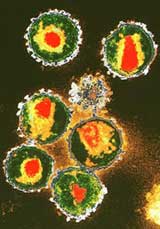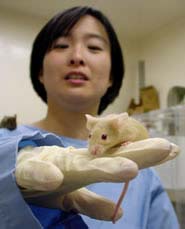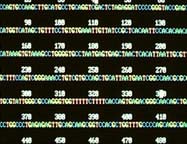Health and Medicine
This subject area encompasses research and studies in the field of human medicine.
Among the wide-ranging list of topics covered here are anesthesiology, anatomy, surgery, human genetics, hygiene and environmental medicine, internal medicine, neurology, pharmacology, physiology, urology and dental medicine.

Shared family mealtimes predict fewer mental health problems in adolescents
Adolescents from families where mealtimes and other activities are shared seem to have fewer mental health problems, reports a study in the Journal of Epidemiology and Community Health.
Researchers assessed the family habits and rituals of 82 first time users, aged between 14 and 23, of mental health services in one metropolitan area. Anxiety and depression were the main problems for which treatment was sought. Family practices in 177 young people within the same age band from various educa

Sex unlikely to cause a stroke and may reduce risk of sudden death
Middle aged men should be heartened to know that frequent sex is not likely to increase their risk of stroke. It may actually reduce the risk of sudden death, suggests research in the Journal of Epidemiology and Community Health.
The Caerphilly study, which takes its name from a former mining town in South Wales, involves tracking the development of heart disease in almost 3000 men. All were aged between 45 and 59 when recruited to the study between 1979 and 1983.
Just under 1000 m

AIDS vaccine delivers
Cellular attack tactic keeps virus at bay.
A new AIDS vaccine could be one of the most promising yet. The drug’s effects in monkeys suggest that killing virus-laden cells may form a key part of future vaccination strategies.
Vaccinated monkeys survived a usually lethal infection with a monkey-human hybrid virus, SHIV. Their primed immune system kept virus levels below detection, Emilio Emini of Merck Research Laboratories in West Point, Pennsylvania, and his team now report

New Technique Detects Deep Vein Thrombosis
Radiologists in Nottingham have discovered a fast and accurate technique to diagnose deep vein thrombosis (DVT), which may be particularly helpful to pregnant women and travellers at risk of developing dangerous blood clots.
In a study funded by the British Heart Foundation and published this week in the American journal, the Annals of Internal Medicine, (15 January 2002, volume 136, number 2) Professor Alan Moody and his team in the department of academic radiology at the University of Nott

DREAM raises pain relief hopes
Missing protein leaves mice impervious to pain
Researchers have a new lead for treating pain. A protein called DREAM appears to play a key role in how mice respond to heat, touch and inflammation 1 .
Mice lacking DREAM seem oblivious to all types of pain, find Josef Penninger and his colleagues at The AMGEN Institute, Toronto, Canada. The animals can bear acute pain – the kind caused for example by heat, pressure, or injections as well as chronic inflammatory

Genome exposes buried bugs
Knowing the human genetic sequence helps unearth invaders.
Human DNA is a new device for disease detectives. The database of human genetics can expose misfit microbe genes in diseased tissues, a US team have found.
Matthew Meyerson, of the Dana-Farber Cancer Institute in Boston, and his colleagues compared 7,000 DNA sequences extracted from cervical cancer cells to the vast database of human genes – and pulled out two misfits. Both were from a virus known to cause the cancer